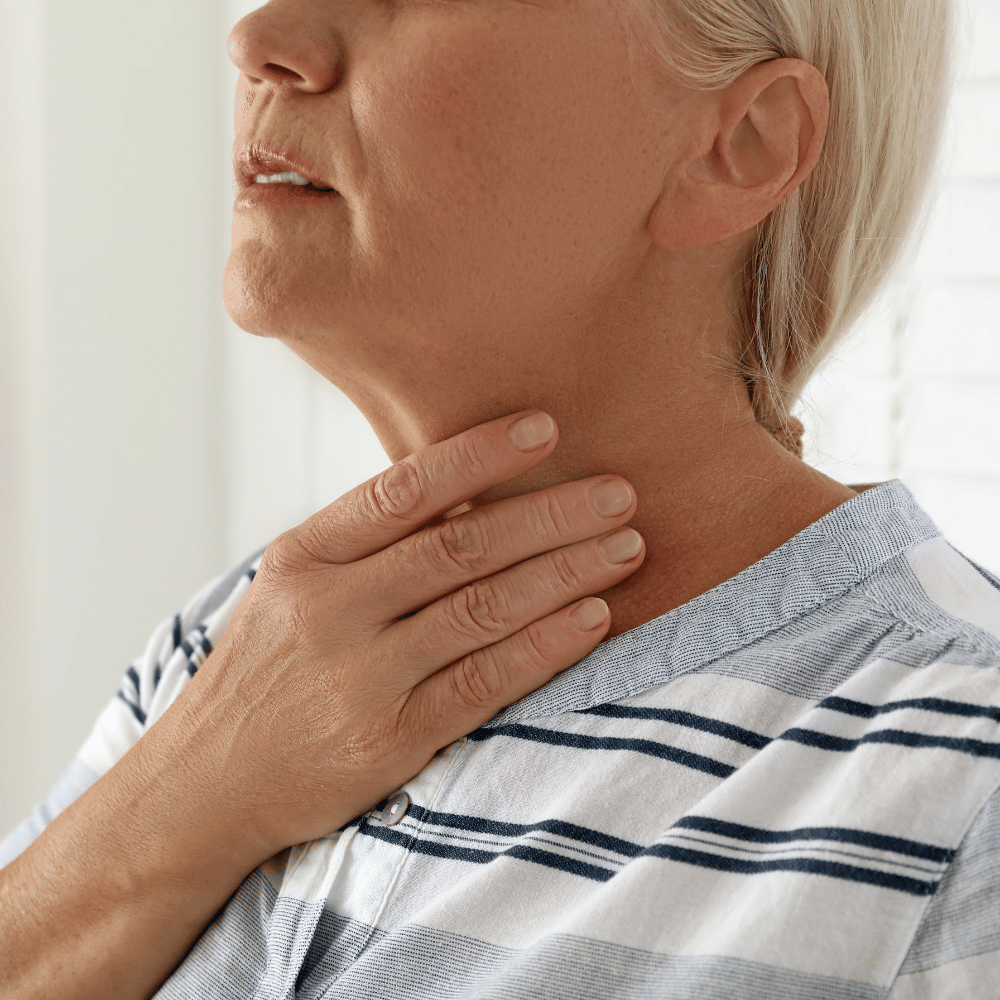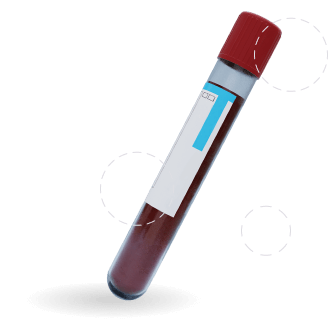
Medical Weight Loss Explained
A lot is said about medical weight loss but we are here to debunk the myths for you.
Blood Tests > Thyroid Function Test

Find Out More


A thyroid hormone level screening is a blood test that measures the levels of various hormones produced by your thyroid gland. These hormones include various thyroid function indicators.
An imbalance of any of these hormones can wreak havoc with your wellbeing. Did you know thyroid disorders are 15 times more common in women than in men? If you are considering getting a thyroid hormone level screening, you are in great hands, as our caring team is on standby to help get your thyroid health back on track.

Your thyroid is a butterfly-shaped gland located at the base of your neck and it forms part of an intricate network of glands called the endocrine system (a system responsible for coordinating multiple bodily activities). Your thyroid gland is specifically tasked with regulating various metabolic processes throughout your body by producing hormones that influence your metabolism, growth, and development.
These hormones include T3, T4 and TSH (a hormone responsible for regulating the production of T4 and T3). When your thyroid gland produces too little or too much hormones, it can lead to troublesome symptoms like irritability, fatigue, weight loss, and weight gain. Therefore, it is crucial to ensure that your thyroid hormone levels are balanced.
A thyroid function test checks the levels of thyroid hormones (thyroxine and triiodothyronine) and thyroid-stimulating hormone (TSH) in your blood to indicate whether your thyroid is functioning properly.
This test is incredibly important because an imbalance in thyroid hormones can lead to hyperthyroidism or hypothyroidism, affect fetal development, and detect thyroid diseases such as thyroid cancer, Hashimoto’s thyroiditis, or Graves’ disease.


You should consider getting a thyroid hormone level screening if you have a family history of thyroid disorders (such as thyroid cancer, autoimmune thyroid diseases like Hashimoto’s thyroiditis or Graves’ disease), have a goiter, are pregnant, are on certain medications, have undergone radiation therapy to your head, neck, or chest , or if you are over the age of 60.
Hyperthyroidism (an overactive thyroid) and hypothyroidism (an underactive thyroid) occur when your thyroid gland produces too little or too much thyroxine (T4) and triiodothyronine (T3).
You may have hyperthyroidism if you are experiencing:
You may have hypothyroidism if you are experiencing:

Use our online booking engine or book your test by giving us a call.
On the online booking engine select the “appointment type” you need.
You will be seen by one of our friendly phlebotomists or trained clinicians.

Your Walk-In Clinic GP will give you all the instructions you need on how to prepare for your thyroid blood test, however, typically the only preparation required is that you ensure you are well-hydrated before you come in to the clinic for your test.

The thyroid test is a simple blood test. A needle is inserted into a vein, usually on the inner arm near the elbow, and a small amount of blood is drawn. You may feel a pricking or scratching sensation, and before you know, the procedure is over.

Your results will be sent to you by email within 4 to 12 hours after your blood has reached our laboratory for testing. If you had a consultation with at Walk-In Clinic with one of our doctors, your Walk-In Clinic doctor will give you a call first to thoroughly discuss your results with you, and what to expect next.
No
Hidden Charges
Transparent fees. The price you see is the price you pay.
No GP consultation
needed
No GP appointment requirement for blood tests
Established
since 1998
Experienced doctors & a professional team.
Strictly
confidential
Your medical records are kept private at all times.
We provide same-day booking options, extensive medical consultations, rapid test outcomes, and comprehensive post-care services at affordable rates.
We offer a wide range of private blood tests in London. Same-day appointments are available 5 days a week.
We work with experienced consultants & healthcare professionals who have received positive feedback from our patients, and with whom we have established long-term relationships.
Latest Episode
Tune in to our podcast to explore the world of healthcare and learn from distinguished special guests. We cover everything from preventative measures to cutting-edge treatments so that you can stay informed and up-to-date on health-related things.

A lot is said about medical weight loss but we are here to debunk the myths for you.

Tourist in London and need a GP? Get fast, private care for illnesses, injuries, or lost medication. No registration needed.

With NHS appointments harder to access, many people are turning to private GPs for faster, more convenient care.
Subscribe for latest updates & news


From same-day private GP and blood test appointments to visa medicals, a sexual and reproductive health clinic, and preventative health screenings, we are here to help.
Contact Us
Accepted Insurance Companies






Please note that Walk-in Clinic is a private medical centre & not an NHS service. Harley Walk-in Clinic Ltd company registration no. 07472804